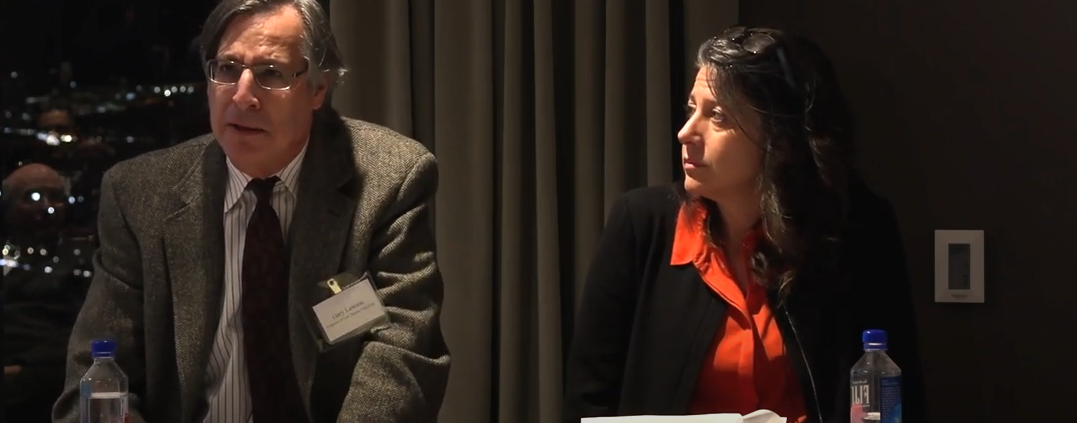“Reasonable Minds Can Differ”: Major Cases Now Before the U.S. Supreme Court
Several recent polls have shown that confidence in the U.S. Supreme Court is at historic lows, but interest in the cases that come before the nation’s highest court remains strong.
The implications of several cases currently before the Court were explored at a March 1 forum, “Reasonable Minds Can Differ,” sponsored by PioneerLegal, the Federal Bar Association, and the Social Law Library.
More than 100 people gathered to hear Boston University School of Law Professors Gary Lawson and Jessica Silbey lay out the facts of five cases currently before the Court. Use the timestamps below to navigate to the portion of the program that deals in detail with each of the five cases discussed.
09:22-25:15 — Tyler v. Hennepin County
“In twenty-first-century United States all private land is held of the state — if you don’t pay the property tax assessment mean people are going to come, they’re going to grab the land, put it up for a judicial auction, and use the proceeds to pay off your debt.”
25:20-39:38 — National Pork Producers Council v. Ross
“The question is whether that extraterritorial effect is so burdensome that it violates the dormant Commerce Clause principles, and that California cannot export its morals legislation, its policing legislation, to the rest of the United States.”
39:40-55:08 — 303 Creative LLC v. Elenis
“The question … is whether applying a public accommodation law like this compels a web designer (or an “artist”) to sell web designing services (or to “speak”) — whether it violates the free speech clause … Is this a services case … or a speech case.”
55:30-1:06:34 — Gonzalez v. Google and Twitter, Inc. v. Taamneh
“The Court will consider whether Section 230 of the Communications Decency Act of 1996 should shield tech platforms from liability when they direct third-party content to individuals who are radicalized by that content and then participate in terrorist attacks.”
1:06:40-1:19:25 — Moore v. Harper
This case may decide whether state legislatures alone get the last word on how federal elections are conducted. “Here’s the bottom-line question—and this is a law professor’s dream: When the Constitution talks about those state bodies, is it talking about them as institutions or as functions?”
PioneerLegal is a nonprofit, nonpartisan public-interest law firm that defends and promotes educational options, accountable government, and economic opportunity. Through legal action and public education, PioneerLegal works to preserve and enhance liberties grounded in the constitutions and civil rights laws of the United States.


